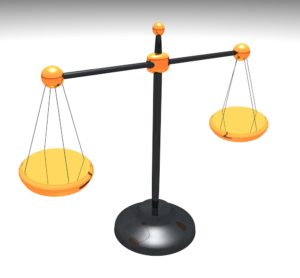Your Guide to Hiring a South Auckland Property Leasing Lawyer
The world of commercial property leasing is more complex than residential letting. In south Auckland, there are many types of commercial property such as warehouses, light industrial retail, medical, offices, and more. Whether you are a building owner, a property manager, a potential or existing tenant, you will need legal advice and support at some stage. Here we look at how a South Auckland property leasing lawyer can help clients on either side of the leasing process.
Understanding the Role of a South Auckland Property Leasing Lawyer
 Knowing the role that a south Auckland property leasing lawyer can play is important to anyone involved in commercial real estate. A tenant, either current or prospective, a property owner, or a manager, can benefit from understanding the help they could get.
Knowing the role that a south Auckland property leasing lawyer can play is important to anyone involved in commercial real estate. A tenant, either current or prospective, a property owner, or a manager, can benefit from understanding the help they could get.
The help and advice might cover current rental trends, potential pitfalls for either side, explaining the implications and obligations, how to manage the process, what to look for from the other side, and more.
Key Tasks of Commercial Real Estate Lawyers
Some of the key tasks include:
Lease Agreements – drafting new leases for a landlord or property manager. This will include the obvious issues like rent, the length of term, rights of renewal, maintenance and repair obligations, and more.
For existing leases, the lawyer can review the terms to assess if they are current or if there is an opportunity for either party to renegotiate.
Negotiating Lease Terms – it is common for property lawyers to negotiate terms of a lease. They can do this for whichever side their client is on, the tenant or the landlord. A lawyer is trained in negotiation so will be more comfortable than non-experts. They also know current market trends and can use that to their clients’ advantage.
Providing Legal Advice – for landlords and tenants to help them understand their rights and obligations.
Resolving Disputes – disputes are common in rental situations, especially commercial ones. These can range from rent arrears, failure to maintain a property, damage liability, eviction issues, disagreements over security deposits, and many more. A lawyer will help to reach a resolution in any dispute by negotiation, mediation, or through binding arbitration.
Guidance on Compliance – with frequently changing property regulations, it’s essential to stay compliant with local and national laws. An experienced property lawyer in south Auckland will stay up-to-date with any changes. They can give advice on compliance issues, so the lessor and the lessee do not breach any regulations.
Assistance with Lease Termination – sometimes a lease has to be terminated. This might be within the terms of the lease, it may be by agreement, or sometimes, with disagreement and acrimony.
In any event, there will be work required from the lawyer. The issue is how much?
If it is a disputed termination, the lawyer will have to prepare notices and issue them to the correct receiving address. This alone is a crucial task, and if it’s not carried out correctly, can delay the process. The lawyer can also appear in court for their client to present their case, whichever side they are representing.
Conclusion
 In a complex commercial real estate landscape like Manukau, the support of a knowledgeable south Auckland property leasing lawyer is indispensable. Whether negotiating a complex commercial lease as a landlord, property manager, or prospective tenant, a skilled lawyer can help.
In a complex commercial real estate landscape like Manukau, the support of a knowledgeable south Auckland property leasing lawyer is indispensable. Whether negotiating a complex commercial lease as a landlord, property manager, or prospective tenant, a skilled lawyer can help.
They can shed light on the meaning of the terms of the lease, help in the actual negotiations, and help to resolve any disputes that arise. Whether you are a landlord and tenant, contact McVeagh Fleming in central Manukau city.
They have lawyers who can provide all the support you need in any commercial real estate lease issue.

 Other times, one partner may think that they are entitled to a bigger portion of the total assets because they earned more than the other one. Again, this is not correct.
Other times, one partner may think that they are entitled to a bigger portion of the total assets because they earned more than the other one. Again, this is not correct. You will also be giving yourself a better start in a new life if your new relationship ends. Separation is usually expensive for both sides. If you have an asset that is protected from the other partner, then you will be further ahead financially.
You will also be giving yourself a better start in a new life if your new relationship ends. Separation is usually expensive for both sides. If you have an asset that is protected from the other partner, then you will be further ahead financially. Starting to consider leaving an abusive relationship can be overwhelming and frightening. However, with the right assistance, it can be done. Using the services of an expert at the earliest stage is recommended in order to understand the various options and available support.
Starting to consider leaving an abusive relationship can be overwhelming and frightening. However, with the right assistance, it can be done. Using the services of an expert at the earliest stage is recommended in order to understand the various options and available support. Regularly reviewing and updating your estate plan is important – and your estate planning lawyer can help. From new assets to starting a business to major life events, a lawyer can ensure your plan stays up to date and effective, reflecting your personal and financial circumstances. For example, they can modify your estate plan should you get a major illness, or if you divorce and then remarry. Each of these circumstances, and others, can have an impact on both your intentions, and the law.
Regularly reviewing and updating your estate plan is important – and your estate planning lawyer can help. From new assets to starting a business to major life events, a lawyer can ensure your plan stays up to date and effective, reflecting your personal and financial circumstances. For example, they can modify your estate plan should you get a major illness, or if you divorce and then remarry. Each of these circumstances, and others, can have an impact on both your intentions, and the law. Lawyers servicing Warkworth provide a wide range of services and legal advice to their clients. Most of these services are well known to the general public while there are others that you might not have heard of. Common services provided by a lawyer range from consultations, drafting documents to representation. You can hire a lawyer to assist in resolving disputes and offer an unbiased perspective in a conflict. To ensure that you are getting quality services, it is crucial to find an experienced law firm with a good reputation. A good law firm is bound to have a team of professional lawyers that strive to provide quality services. The following are some of the services that a Warkworth lawyer can provide:
Lawyers servicing Warkworth provide a wide range of services and legal advice to their clients. Most of these services are well known to the general public while there are others that you might not have heard of. Common services provided by a lawyer range from consultations, drafting documents to representation. You can hire a lawyer to assist in resolving disputes and offer an unbiased perspective in a conflict. To ensure that you are getting quality services, it is crucial to find an experienced law firm with a good reputation. A good law firm is bound to have a team of professional lawyers that strive to provide quality services. The following are some of the services that a Warkworth lawyer can provide: For example, some property may have been owned prior to the start of the relationship. A divorce lawyer will advise and negotiate whether this is to be included in the joint matrimonial property. If a home is involved, then one party will have to by it from the other, or it is sold and the proceeds included in the joint property. Either way, a lawyer will need to be involved to handle the paperwork.
For example, some property may have been owned prior to the start of the relationship. A divorce lawyer will advise and negotiate whether this is to be included in the joint matrimonial property. If a home is involved, then one party will have to by it from the other, or it is sold and the proceeds included in the joint property. Either way, a lawyer will need to be involved to handle the paperwork. Our company is established with many years of experience in the plumbing business and providing a 24 hour North Shore plumber service. Every plumber working in our company has great local knowledge and years of experience in the field. They have the latest training and are equipped with the right tools. We have a few vans and you can rest assured that there’s a van nearby. In case of an emergency, your issue will be resolved quickly.
Our company is established with many years of experience in the plumbing business and providing a 24 hour North Shore plumber service. Every plumber working in our company has great local knowledge and years of experience in the field. They have the latest training and are equipped with the right tools. We have a few vans and you can rest assured that there’s a van nearby. In case of an emergency, your issue will be resolved quickly. Conflict in the workplace will make any situation difficult and you might not know what the best way to resolve this is. If you are facing conflict at work, you should talk to an employment lawyer as they will be able to assess the situation and advise you on the options available to you. Not all workplace conflict will need to end with you leaving the business.
Conflict in the workplace will make any situation difficult and you might not know what the best way to resolve this is. If you are facing conflict at work, you should talk to an employment lawyer as they will be able to assess the situation and advise you on the options available to you. Not all workplace conflict will need to end with you leaving the business.
 Business owners should be updated with the latest strategies on how to drive more customers to their businesses. They must study carefully how customers look for products and services online. There are plenty of Internet marketing strategies used by different businesses to be recognised in their industries and get the attention of many customers. Search engine optimisation, for one, is a must for businesses looking to generate more traffic to their website. However, it is a very complex task and you do need to work with a specialist Wellington SEO company.
Business owners should be updated with the latest strategies on how to drive more customers to their businesses. They must study carefully how customers look for products and services online. There are plenty of Internet marketing strategies used by different businesses to be recognised in their industries and get the attention of many customers. Search engine optimisation, for one, is a must for businesses looking to generate more traffic to their website. However, it is a very complex task and you do need to work with a specialist Wellington SEO company.
 When you talk to an immigration lawyer, you will be able to discuss all of the options. This can help you understand what you need to do and whether the route you are thinking of using is actually viable. The visa that you want to get might not be the best or easiest route available to you and a lawyer will be able to tell you about this.
When you talk to an immigration lawyer, you will be able to discuss all of the options. This can help you understand what you need to do and whether the route you are thinking of using is actually viable. The visa that you want to get might not be the best or easiest route available to you and a lawyer will be able to tell you about this.